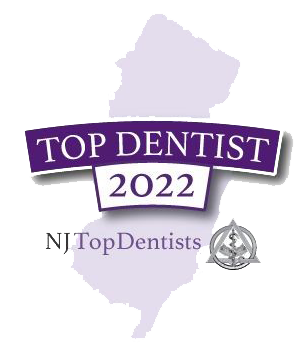
TMJ Disorder 101

 If you frequently experience a clicking or popping sound in your jaw while you chew, suffer from headaches or migraines, or have a limited range of motion of your mouth, you may have a disorder affecting your temporomandibular joint (TMJ). But what does this mean? What is the “TMJ” and what does it mean to have TMJ disorder? Expert West Orange TMJ dentist Dr. Ivan F. Stein explains.
If you frequently experience a clicking or popping sound in your jaw while you chew, suffer from headaches or migraines, or have a limited range of motion of your mouth, you may have a disorder affecting your temporomandibular joint (TMJ). But what does this mean? What is the “TMJ” and what does it mean to have TMJ disorder? Expert West Orange TMJ dentist Dr. Ivan F. Stein explains.
What Is the TMJ?
“TMJ” is the abbreviation for “temporomandibular joint,” which is a small hinge joint located where the skull and lower jar meet, in front of the ear. The TMJ is what permits the mandible, or the lower jaw, to move and function, allowing you to chew, yawn and talk. You also have muscles surrounding and attached to the TMJ, which control the jaw’s motion and position.
What, Then, Is TMJ Disorder?
Many people mistakenly refer to TMJ disorder as simply “TMJ.” However, disorders of this joint are properly referred to as “TMD.” TMD, then, is a general term describing any health problem affecting the TMJ.
Possible Causes of TMD
There are many possible causes of TMD, including:
- Trauma to the area (e.g., whiplash, a heavy blow)
- Bruxism (i.e., grinding the teeth) or clenching the teeth, both of which put a lot of stress on the TMJ
- Osteoarthritis or rheumatoid arthritis in this area
- A dislocated disc or soft cushion between the ball and socket
- Chronic stress, causing an individual to clench the teeth or tighten the jaw and facial muscles
TMD Symptoms
TMD symptoms range from temporary to chronic and from tolerable to debilitating. Thus, some individuals with TMD may go many years without having their symptoms evaluated by a TMJ specialist. With this in mind, common TMD symptoms include:
- Tenderness or pain throughout the face, TMJ region, ears, neck, shoulders and upper back
- A limited range of motion of the mouth
- A popping, clicking or grating sound while eating
- A jaw that gets “locked,” or stuck in either an open or closed position
- A tired sensation throughout the face
- A misaligned bite
- Swelling on one or both sides of the face
- Headaches
- Severe migraines with nausea, vomiting, sensitivity to light, etc.
- Dizziness
- Hearing problems
- Tinnitis (i.e., a ringing in the ears)
A proper diagnosis of your TMD symptoms is crucial to formulating an effective treatment plan. If you suffer from any of the symptoms above, schedule a complimentary consultation with Dr. Stein of the Headache and TMJ Center of New Jersey today by calling (855) 865-3627.

